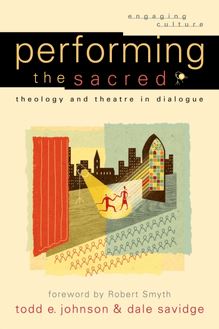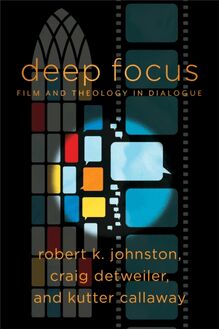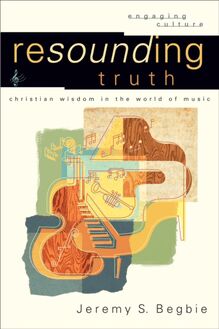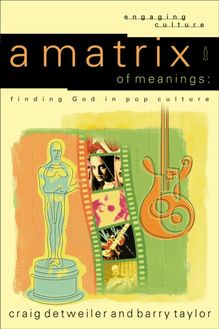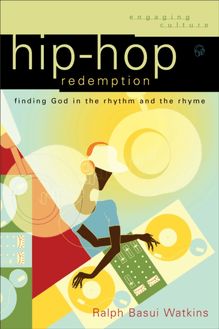-
 Univers
Univers
-
 Ebooks
Ebooks
-
 Livres audio
Livres audio
-
 Presse
Presse
-
 Podcasts
Podcasts
-
 BD
BD
-
 Documents
Documents
-
- Cours
- Révisions
- Ressources pédagogiques
- Sciences de l’éducation
- Manuels scolaires
- Langues
- Travaux de classe
- Annales de BEP
- Etudes supérieures
- Maternelle et primaire
- Fiches de lecture
- Orientation scolaire
- Méthodologie
- Corrigés de devoir
- Annales d’examens et concours
- Annales du bac
- Annales du brevet
- Rapports de stage
La lecture à portée de main
Vous pourrez modifier la taille du texte de cet ouvrage
Découvre YouScribe en t'inscrivant gratuitement
Je m'inscrisDécouvre YouScribe en t'inscrivant gratuitement
Je m'inscrisEn savoir plus
Vous pourrez modifier la taille du texte de cet ouvrage
En savoir plus

Description
Sujets
Informations
| Publié par | Baker Publishing Group |
| Date de parution | 01 décembre 2007 |
| Nombre de lectures | 0 |
| EAN13 | 9781441200716 |
| Langue | English |
| Poids de l'ouvrage | 1 Mo |
Informations légales : prix de location à la page 0,0864€. Cette information est donnée uniquement à titre indicatif conformément à la législation en vigueur.
Extrait
Engaging Culture
W ILLIAM A. D YRNESS AND R OBERT K. J OHNSTON, SERIES EDITORS
The Engaging Culture series is designed to help Christians respond with theological discernment to our contemporary culture. Each volume explores particular cultural expressions, seeking to discover God’s presence in the world and to involve readers in sympathetic dialogue and active discipleship. These books encourage neither an uninformed rejection nor an uncritical embrace of culture, but active engagement informed by theological reflection.
© 2007 by Jeremy S. Begbie
Published by Baker Academic
a division of Baker Publishing Group
P.O. Box 6287, Grand Rapids, MI 49516-6287
www.bakeracademic.com
Ebook edition created 2013
All rights reserved. No part of this publication may be reproduced, stored in a retrieval system, or transmitted in any form or by any means—for example, electronic, photocopy, recording—without the prior written permission of the publisher. The only exception is brief quotations in printed reviews.
ISBN 978-1-4412-0071-6
Library of Congress Cataloging-in-Publication Data is on file at the Library of Congress, Washington, DC.
Unless otherwise indicated, Scripture is taken from the New Revised Standard Version of the Bible, copyright © 1989 by the Division of Christian Education of the National Council of the Churches of Christ in the United States of America. Used by permission. All rights reserved.
Scripture marked KJV is taken from the King James Version of the Bible.
Scripture marked NIV is taken from the Holy Bible, New International Version®. NIV®. Copyright © 1973, 1978, 1984 by Biblica, Inc.™ Used by permission of Zondervan. All rights reserved worldwide. www.zondervan.com .
Scripture marked RSV is taken from the Revised Standard Version of the Bible, copyright 1952 [2nd edition, 1971] by the Division of Christian Education of the National Council of the Churches of Christ in the United States of America. Used by permission. All rights reserved.
In memory of MMB and GHB
Cover
Series Page
Title Page
Copyright Page
Dedication
Illustrations
Acknowledgments
Introduction
Part 1 Music in Action
1. What Are We Talking About?
2. Music in Action in Biblical Times
Part 2 Encounters
3. Music and God’s Cosmic Order: The Great Tradition
4. A Sixteenth-Century Trio
5. Wise beyond Words
6. Three Musical Theologians
7. Two Theological Musicians
Part 3 Music in a Christian Ecology
8. A Christian Ecology
9. Music in God’s World
10. Music in God’s Calling
11. Singular Powers
Conclusion
Notes
Bibliography
Scripture Index
Name Index
Subject Index
About the Author
2.1 Pottery figurine of a girl playing the timbrel
2.2 A kinnor
2.3 Shophars
4.1 Portrait of Martin Luther
4.2 Portrait of John Calvin
4.3 Portrait of Huldrych Zwingli
5.1 Portrait of Johann Sebastian Bach
5.2 Cantata 78, Jesus, der du meine Seele (opening, bass line)
5.3 Cantata 78, Jesus, der du meine Seele (bars 17–25)
5.4 Aria “Es ist vollbracht,” from St. John Passion (opening)
5.5 Aria “Es ist vollbracht,” from St. John Passion (bars 19–23)
5.6 “Crucifixus,” from Mass in B Minor (bars 5–9)
7.1 Olivier Messiaen
7.2 Dominant seventh chord
7.3 Tension and resolution
7.4 “Regard du Père,” from Vingt Regards sur l’Enfant-Jésus (excerpt)
7.5 Le Banquet Céleste (opening)
7.6 “The Mystery of the Holy Trinity,” from Les Corps Glorieux (excerpt)
7.7 “Force et Agilité des Corps Glorieux,” from Les Corps Glorieux (excerpt)
7.8 James MacMillan
8.1 Symbolic Crucifixion from the Evangeliary of the Abbess Uta of Niedermunster
10.1 The Wanderer above the Mists , Caspar David Friedrich
10.2 Trio, from Mozart, Symphony no. 41 in C Major, K. 551, “Jupiter,” third movement
My interest in music has been lifelong, so it would require many pages to list all those to whom I owe a debt of gratitude. Some, however, must be singled out.
The principal, Christopher Cocksworth, and the staff and students of Ridley Hall, Cambridge, have provided an immensely supportive base and stimulating environment for me to explore the interplay between music and theology. During the writing of this book, I have also been privileged to be associate director at the Institute for Theology, Imagination and the Arts at the University of St. Andrews. The project “Theology through the Arts” is now based there, and an extraordinary community of scholarship, research, and mutual support has developed. From the beginning we have sought to foster an ethos that is unashamedly theological while at the same time does justice to the integrity of the arts. I am very grateful to the institute’s director, Professor Trevor Hart, and to my colleagues at St. Andrews for their intellectual courage and practical support during the last few years. Professor Alan Torrance, himself a very fine musician, has been a consistent, loyal, and enthusiastic encourager as well as a constructive critic. Special thanks go to Suzanne McDonald, former research student at St. Andrews, and Steven Guthrie (now at Belmont University), who have both read the entire text with great care and without whose help this would be a much weaker book. In St. Andrews and Cambridge I have also been fortunate to supervise a range of very gifted postgraduate students, whose work has impacted this book in numerous ways. They, and those like them, are the ones who will carry this kind of cross-disciplinary work into the future. In particular I should like to thank Imogen Adkins, Alison Connett, Andy Edwards, Andy McCoy, David McNutt, David Moseley, Steven Prokopchuk, Ed Russell, Paul Scaringi, Chelle Stearns, and Férdia Stone-Davis.
Many members of the Faculty of Divinity at the University of Cambridge have contributed to the shaping of the ideas that appear here; in particular I am indebted to David Ford and Daniel Hardy. The much-lamented Colin Gunton, theologian and musician, provided both intellectual food and musical insight, and my colleague at Ridley Hall, Philip Jenson, provided very helpful comments on the biblical sections. Gratitude goes to many others who have been kind enough to advise on material that has found its way into this book, especially Sam Barrett, David Creese, John Ito, Hyesook Kim, Micky Mattox, Stephen Schoessler, and Robert Sholl.
I am also very grateful for many illuminating conversations with Richard Bauckham, Bruce Benson, Alastair Borthwick, Frank Burch Brown, Graham Cray, Brian Daley, Malcolm Guite, Vanessa Herrick, Simon Howell, Ann Loades, Roger Lundin, David Moseley, Micheal O’Siadhail, David Peacock, John Polkinghorne, Andrew Rumsey, Dal Schindell, Luci Shaw, Janet Martin Soskice, Kevin Vanhoozer, John Walford, Rowan Williams, Tom Wright, Nicholas Wolterstorff, and the late Anthony Monti. Special mention also ought to be made of some distinguished musicians who have had an important influence on my thinking: John Butt, Daniel Chua, Stephen Cleobury, Robert Duerr, Alexander Goehr, Colin Kingsley, James MacMillan, Paul Spicer, Nigel Swinford, John Tavener, and Geoffrey Webber.
Much of the thinking behind this book has arisen through interacting with students and staff of institutions outside the United Kingdom. Regent College, Vancouver, has played a key role, as has Fuller Seminary, Pasadena, California; Wheaton College, Wheaton, Illinois; and Calvin College, Grand Rapids, Michigan; as well as scholars at the universities of British Columbia, Yale, Stanford, Berkeley, Trinity Western, Iowa, and Cape Town. Many chapters were written while a resident member at the Center of Theological Inquiry, Princeton; grateful thanks are due to the former director, Wallace Allston, as well as to Will Storrar and Robert Jenson (a musical theologian if ever there was one) and to the remarkable support staff at that unique gathering place of theological wisdom.
My research assistant, Dan Vaca, provided a huge amount of help, from the mundane to the profound, and Dona McCullagh has proofread the entire manuscript with penetrating wisdom as well as undertaken a hundred other practicalities with grace and good humor—I am indebted to them both. The editors of this series, Robert Johnston and William Dyrness, have given solid and reassuring advice throughout, and Bob Hosack of Baker Academic has been a model of patience, especially as deadlines have frequently been deferred.
The largest expression of gratitude, as always, goes to my wife, Rachel, and our offspring, Helen, Mark, Heather, and Emma—all of whom have taught me much about what it means to seek God’s “resounding truth” in music ranging from Palestrina to Michael Jackson.
Can you imagine a day without music? You wake up. Perhaps a bedside radio brings you a jingle at news time. You take a train to work—easy classics are piped through overhead speakers at the station. Or you drive to work and flick on the radio—cool jazz fills the car, a jeep next to you at the traffic lights throbs with hip-hop. You are at home with children; one of them plays a video game—with synchronized music; they watch a video—most of which is backed by music. In the evening, you put your feet up and watch a sitcom you recorded earlier in the day—the scenes are joined by five-second musical links. Or you go for a beer—and you find a folk band in the bar. Or you go out to a movie—half the sound track is musical. And on Sunday, perhaps you go to church—and about half of the service uses music.
More than ever before in Western society, music is part of our lives, ubiquitously present. Whether we love it or ignore it, play it or shut it out, revel in it or resent it, it is there.
Yet many of us rarely if ever stop to think about what music is, how it works, what it might be doing to us, and what we might be doing with it. Christians are no exception. The last twenty years or so have seen a flood of books on “Christianity and . . . ,” covering topics from party politics t
-
 Univers
Univers
-
 Ebooks
Ebooks
-
 Livres audio
Livres audio
-
 Presse
Presse
-
 Podcasts
Podcasts
-
 BD
BD
-
 Documents
Documents
-
Jeunesse
-
Littérature
-
Ressources professionnelles
-
Santé et bien-être
-
Savoirs
-
Education
-
Loisirs et hobbies
-
Art, musique et cinéma
-
Actualité et débat de société
-
Jeunesse
-
Littérature
-
Ressources professionnelles
-
Santé et bien-être
-
Savoirs
-
Education
-
Loisirs et hobbies
-
Art, musique et cinéma
-
Actualité et débat de société
-
Actualités
-
Lifestyle
-
Presse jeunesse
-
Presse professionnelle
-
Pratique
-
Presse sportive
-
Presse internationale
-
Culture & Médias
-
Action et Aventures
-
Science-fiction et Fantasy
-
Société
-
Jeunesse
-
Littérature
-
Ressources professionnelles
-
Santé et bien-être
-
Savoirs
-
Education
-
Loisirs et hobbies
-
Art, musique et cinéma
-
Actualité et débat de société
- Cours
- Révisions
- Ressources pédagogiques
- Sciences de l’éducation
- Manuels scolaires
- Langues
- Travaux de classe
- Annales de BEP
- Etudes supérieures
- Maternelle et primaire
- Fiches de lecture
- Orientation scolaire
- Méthodologie
- Corrigés de devoir
- Annales d’examens et concours
- Annales du bac
- Annales du brevet
- Rapports de stage

